Research Report: 2016-2018
▼ Choose a report:

Powered by Research & Graduate Studies

Powered by Arts and Social Science
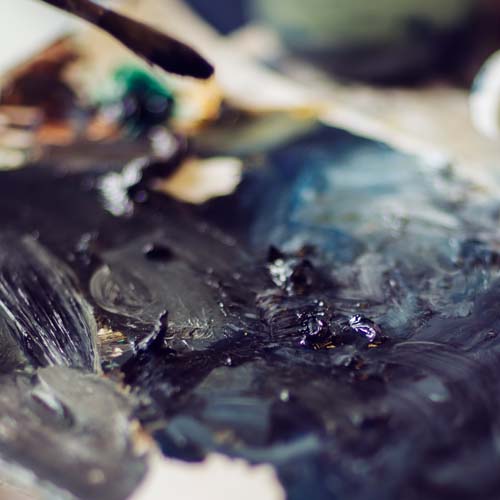
Powered by Fine Arts

Powered by Science and the Environment

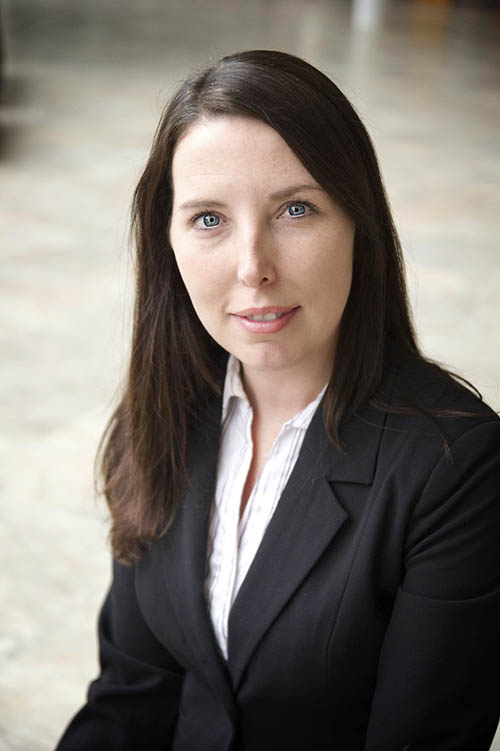
Anyone who thinks history is only about dusty books and dreary lectures hasn’t met Dr. Bonnie White.
Dr. White’s research ranges from women’s labour and activism in the British Empire to outmigration in rural areas to community issues and identity.
Her participation in a project on the southwest coast along with two other Grenfell researchers, Dr. Roza Tchoukaleyska, cultural geographer, and Dr. Raymond Thomas, food chemist, is bringing the concept of the "food loop" to the area.
"This is a community-driven and community-focused approach to economic development," said Dr. White, adding it combines on-farm tourism attractions, food heritage and the commercialization of local food products. "We’re working with multiple regional partners with an interest in agritourism and development of novel local foods."
Termed the Southwest Food Loop, the project will see the three researchers work with students from Grenfell’s graduate programs (environmental policy and boreal ecosystems and agricultural science) and will avail of the Functional Food Sensory Lab and the Boreal Ecosystem Research Facility at Grenfell.
Dr. White will collect food heritage stories and train students and communities in oral history gathering.
"I have written about the history of agriculture and the relationship between industry and community," she said, adding that she has worked on oral histories and the cultural and economic values attached to rural regions. "It’s about studying the relationship between history and heritage."
Dr. White has also worked on television programs and with museums on the commodification of the past for heritage television and local tourism.
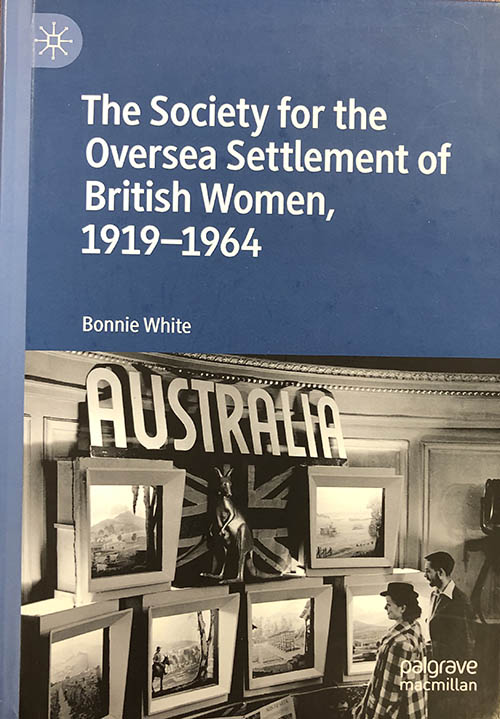
Another of Dr. White’s interests involves women’s history and social change during and after the First World War, particularly in women’s activism through volunteer and government organizations. Recently Dr. White conducted a study of the Imperial Order Daughters of the Empire (IODE) in western Newfoundland. The IODE was a women’s patriotic organization aimed at maintaining an imperial connection between Britain and Canada, with chapters established across Canada since the turn of the 20th century, and a chapter formed in Newfoundland that lasted from 1910 to 1930. She is seeking to gain an understanding of the philanthropic work of Newfoundland chapters of the IODE, the influence of which was documented in The Western Star throughout the 1950s, ‘60s and ‘70s.
"Newfoundland has always had a unique relationship with both Canada and Britain, and Confederation has remained a hotly debated issue for nearly 70 years," said Dr. White. "While some embraced the new connection to Canada, others worried about what it would mean for Newfoundland’s cultural identity or for its centuries-old relationship to Britain. The IODE is part of the story of how Corner Brook responded to Confederation, how it saw itself as a city, and how residents have shaped the history of our region."
Anyone wishing to contribute information to Dr. White’s study should contact at bjwhite@grenfell.mun.ca
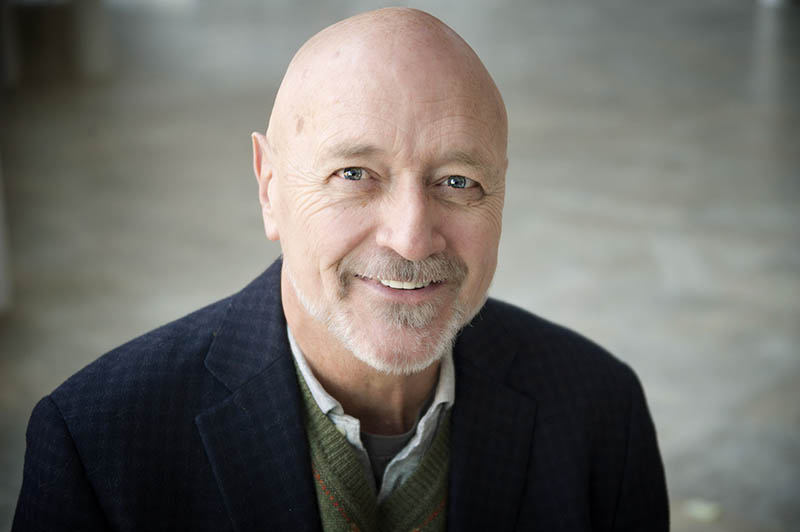
Dr. Rainer Baehre became interested in the environmental history of Newfoundland and Labrador nearly two decades ago. When on the board of directors of the Corner Brook Museum and Archives during its infancy, he researched the island’s forest history and co-organized Woodland Echoes, a two-day scholarly and community symposium, in collaboration with the Newfoundland Historical Society; a series of scholarly conference papers and publications followed including a co-authored paper, "Sustainability in the Humber River Bain," that later appeared in the International Journal of Global Warming (2011). He also published Outrageous Seas: Shipwreck and Survival in the Waters off Newfoundland, 1583-1896 (McGill-Queen’s University Press, 1999), a historically contextualized study of many rare first-hand shipwreck accounts that reflect the role of the sea as social and cultural history.
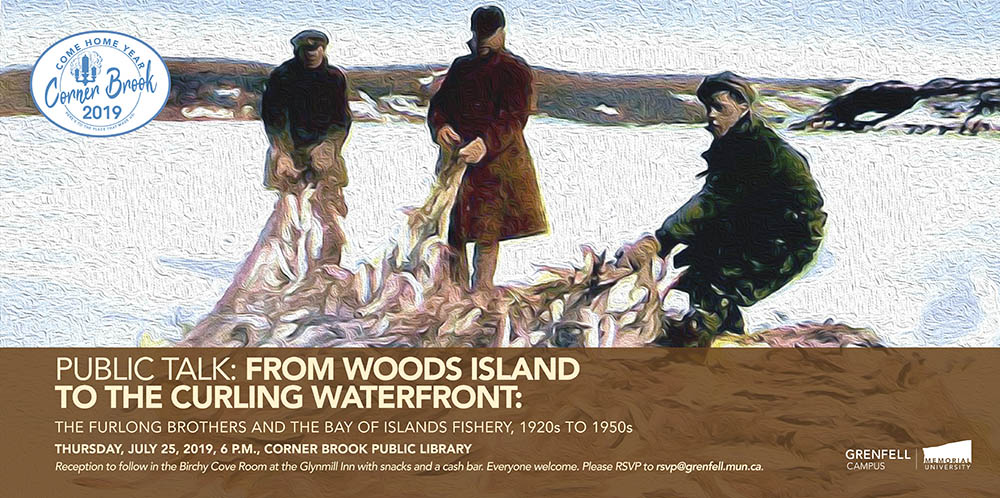
Dr. Baehre’s more recent research in this field has focused on western Newfoundland. Much had been written about the new French Shore but little on the overlapping American Shore on this coast, until his study, "Diplomacy, Legal Issues, and Foreign Fishing in Newfoundland, 1814-30," in Essays in the History of Canadian Law, Vol. 10 (University of Toronto Press, 2008), soon to be followed by "Newfoundland’s West Coast and the Gulf of St. Lawrence Fishery, ca. 1755–83: A Case Study of War, Fish, and Empire," in The Greater Gulf: Essays on the Environmental History of the Gulf of St. Lawrence (McGill-Queen’s University Press, 2019 – in press).
Over the years, Dr. Baehre has continued his research into the environmental history of western Newfoundland in an effort to document and develop a better understanding of this region’s heritage. This has included not only involving students of History 4080 (Oral History) in class projects but also in a series of community library talks, later aired on Rogers Cable. Another example (with Richard Furlong), which was part of the Corner Brook Come Home week celebrations, is "From Woods Island to the Curling Waterfront: The Furlong Bros and the Bay of Island Fisheries, 1920s to 1950s."